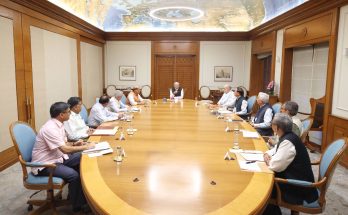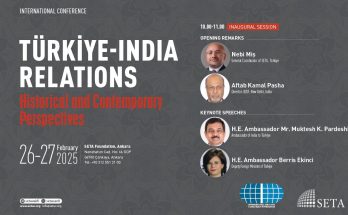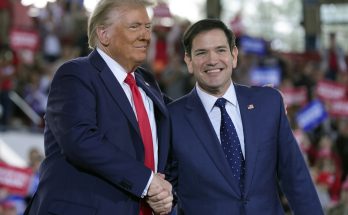 “Heart-touching”, “warm”, “magnetic”, “Hit”, and “super-duper” – these are just a few superlatives being used to describe the stirring speech given by India’s Prime Minister Narendra Modi to his captivated audience in Nepal’s parliament.
“Heart-touching”, “warm”, “magnetic”, “Hit”, and “super-duper” – these are just a few superlatives being used to describe the stirring speech given by India’s Prime Minister Narendra Modi to his captivated audience in Nepal’s parliament.
If tweets and comments by Nepal’s leading politicians and decision makers from across the political spectrum are to be believed, Modi’s historic visit August 3-4 may have done enough to reset relations between India and Nepal.
“Modi’s speech in parliament has assured us all that the gap in India-Nepal relations would be bridged. This has added a new dimension to Nepal-India ties,” said Pushpa Kamal Dahal aka Prachanda, chairman, UCPN (Maoist).
“Modi´s appreciation of [the] peace process, commitment 2 [to] federal republican constitution, cooperation in eco dev [economic development], mention of Lumbini notable,” tweeted Baburam Bhattarai, another former prime minister.
Kamal Thapa, leader of the right-wing pro-monarchy party, confessed to being mesmerised by Modi’s speech. “Modi stole the show. He talked very high about Nepal´s rich culture, religion and heritage. He proved he is a statesman and a master orator,” he tweeted.
Modi played his cards brilliantly, he touched on most –- if not all –- issues of contention between the two countries, cleared the air of irritants that shackle the relationship while still safeguarding India’s core interests. He gave everyone something to cheer about.
Before the visit, experts in Delhi had argued that Modi needs to set the record straight about India’s position on important provisions in Nepal’s forthcoming constitution and governmental structure.
In an important step, Modi’s unequivocal support for a federal, democratic and republican Nepal has helped clear the air, and give Nepal’s politicians that extra boost to pursue this goal to its conclusive end in the constitution.
Wisely, Modi stayed clear of the Hindu versus secular debate in Nepal. India’s External Affairs Minister Sushma Swaraj had skilfully dodged giving support for Hindu Nepal during an interaction in Kathmandu. Modi, too, stayed clear of the contentious issue.
Speaking about Modi’s Nepal visit, India’s former ambassador to Nepal Jayant Prasad had said that in diplomacy cosmetics are as important as substance; Modi seems to have done his best to improve the tone and tenor for this critical relationship.
 A pedestrian issue, which the radical nationalist in Nepal never seem to miss while stroking anti-India sentiments, is India’s appropriation of Buddha; Modi by repeating that Buddha was indeed born in Lumbini, Nepal, has hopefully helped do away with an irritant that fuels mistrust and hate.
A pedestrian issue, which the radical nationalist in Nepal never seem to miss while stroking anti-India sentiments, is India’s appropriation of Buddha; Modi by repeating that Buddha was indeed born in Lumbini, Nepal, has hopefully helped do away with an irritant that fuels mistrust and hate.
Similarly, the issue of the Treaty of Peace and Friendship was also tackled ingeniously. In his meeting with Nepal’s Prime Minister Sushil Koirala, Modi placed the onus of changing the document on Nepal. “You can do exactly what you want with this treaty. You can remove it, you can change it. Come up with a proposal and I will accept it,” adding, “Paper does not make this relationship.”
Modi also made peace with the UCPN (Maoists) by lauding their decision to leave the ballot for the bullet, what he called the march from “yudh to Buddh.”
In terms of development Modi was generous with the gifts, while conveying a message of mutual benefit. By talking about Nepal as a partner rather than a dependent, Modi provided Nepalese lawmakers with the sense of urgency in tackling all-important developmental issues. By underling that Nepal is sovereign to take its decisions and to set the pace, nature and priority of its development, Modi has left quite an impression on Kathmandu’s political elite.
With his heart-warming speech before the parliament in which he conveyed a strong desire on part of Delhi to transform its ties with Kathmandu, India’s prime minister has managed to generate a surge of goodwill for India in Nepal that has eluded this relationship for over two decades.
Author Profile
- India Writes Network (www.indiawrites.org) is an emerging think tank and a media-publishing company focused on international affairs & the India Story. Centre for Global India Insights is the research arm of India Writes Network. To subscribe to India and the World, write to editor@indiawrites.org. A venture of TGII Media Private Limited, a leading media, publishing and consultancy company, IWN has carved a niche for balanced and exhaustive reporting and analysis of international affairs. Eminent personalities, politicians, diplomats, authors, strategy gurus and news-makers have contributed to India Writes Network, as also “India and the World,” a magazine focused on global affairs.
Latest entries
 India and the WorldJune 26, 2025Operation Sindoor: India Sheds Restraint, Rediscovers Utility of Force
India and the WorldJune 26, 2025Operation Sindoor: India Sheds Restraint, Rediscovers Utility of Force India and the WorldJune 23, 2025BRICS summit in Rio to focus on Global South, local currency trade
India and the WorldJune 23, 2025BRICS summit in Rio to focus on Global South, local currency trade Africa InsightsJune 11, 2025New Opportunities in India-Japan Cooperation in Africa
Africa InsightsJune 11, 2025New Opportunities in India-Japan Cooperation in Africa India and the WorldMay 23, 2025Post-Operation Sindoor, India reminds Turkey, China of concerns and sensitivities
India and the WorldMay 23, 2025Post-Operation Sindoor, India reminds Turkey, China of concerns and sensitivities







